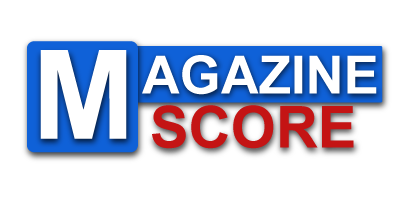Introduction

The digital age has ushered in a plethora of new terms and concepts, with “of leaked” being one of the most recent additions to the lexicon. But what exactly does this term mean, and why is it becoming increasingly relevant? In today’s interconnected world, understanding “leaked” is crucial, not just for tech-savvy individuals but for anyone who values their privacy and security online. This article delves deep into the concept of “of leaked,” exploring its origins, implications, and the various ways it impacts individuals and society as a whole. From legal consequences to psychological effects, we’ll cover every facet of this multifaceted issue, offering insights and tips on how to navigate the complex digital landscape.
What is “leaked”?
The Origin of the Term
The term “of leaked” is a blend of the words “offline” and “leaked,” and it primarily refers to the unauthorized release of private or confidential information, often with malicious intent. This can include anything from personal photos and videos to sensitive corporate data. While the concept of leaking information isn’t new, the term “of leaked” specifically highlights the transition from offline to online dissemination, emphasizing how easily offline Content can be exposed in the digital realm.
Evolution and Popularity
In recent years, “leaked” has gained traction due to the increasing number of high-profile leaks that have made headlines. The evolution of social media and the internet has made it easier for such Content to spread rapidly, reaching millions of people in a matter of minutes. This rise in popularity is also fueled by the voyeuristic tendencies of internet users, who often share and consume leaked Content without considering the ethical implications.
Why It Matters in Today’s Digital Age
In an ofleaked era where data is considered the new gold, the significance of “ofleaked” cannot be overstated. The ease with which information can be leaked and the potential damage it can cause makes it a critical issue for individuals, businesses, and governments alike. Understanding “ofleaked” is essential for protecting one’s privacy and maintaining control over personal information in an increasingly digital world.
How “Ofleaked” Content Affects Privacy
The Privacy Concerns
One of the most alarming aspects of “leaked” Content is the violation of privacy it entails. When personal information is leaked without consent, it can lead to a host of issues, from identity theft to harassment. The very essence of privacy is compromised when one’s offline Content is suddenly made public, often with devastating consequences.
Personal Data Exposure
Leaked Content often includes personal data, such as names, addresses, phone numbers, and even financial information. Once this data is exposed, it can be used for various nefarious purposes, including fraud and blackmail. The victims of “leaked” Content often find themselves vulnerable, with their personal lives laid bare for all to see.
Impact on Digital Footprint
A digital footprint is the trail of data that one leaves behind while using the internet. When “ofleaked” Content enters the digital space, it becomes a permanent part of this footprint, making it nearly impossible to erase. This can have long-term implications, affecting everything from job prospects to personal relationships.
The Legal Implications of “Ofleaked” Content
Copyright and Intellectual Property Rights
One of the key legal concerns surrounding “of leaked” Content is the violation of copyright and intellectual property rights. When Content is leaked without permission, it infringes on the rights of the original owner. This can lead to legal battles, with the victims seeking compensation for the unauthorized use of their work.
Legal Consequences for Leakers
Those responsible for leaking Content can face severe legal consequences, including fines and imprisonment. Depending on the nature of the leaked Content, the penalties can vary, but they are generally designed to deter others from engaging in similar activities. In some cases, leakers may also be sued for damages, further compounding their legal troubles.
How Victims Can Protect Themselves
For victims of “leaked” Content, there are several legal avenues available for protection. They can file lawsuits against the perpetrators, seek restraining orders, and work with law enforcement to track down the source of the leak. Additionally, they can take steps to have the Content removed from online platforms, although this can be a challenging and time-consuming process.
The Role of Social Media in Amplifying “Ofleaked” Content.
Viral Nature of Leaks
Social media platforms play a significant role in the spread of “leaked” Content. Once something is leaked, it can quickly go viral, reaching millions of users across various platforms. This viral nature is often fueled by the sensationalism surrounding the Content, with users eager to share and comment on the latest leak.
Social Media Platforms’ Responsibilities
Given their role in amplifying leaks, social media platforms have a responsibility to address the issue. This includes implementing stricter content moderation policies, developing better detection tools, and working with law enforcement to track down and remove leaked Content. However, the effectiveness of these measures varies, and many platforms struggle to keep up with the sheer volume of leaked Content.
Case Studies on Major Leaks
Several high-profile leaks have highlighted the role of social media in spreading “of leaked” Content. For example, celebrity photo leaks and corporate data breaches have both been exacerbated by the rapid dissemination of information on platforms like Twitter, Facebook, and Instagram. These cases serve as a reminder of the power and reach of social media in the digital age.
How to Protect Yourself from Becoming a Victim of “Ofleaked” Content
Online Security Best Practices
Protecting oneself from “leaked” Content begins with practising good online security habits. This includes being cautious about what you share online, using secure networks, and avoiding suspicious links or downloads. Additionally, it’s important to regularly update your software and use antivirus programs to protect against potential breaches.
Strong Passwords and Two-Factor Authentication
One of the most effective ways to safeguard your information is by using strong, unique passwords for all your online accounts. Passwords should be a combination of letters, numbers, and symbols, and should not be easily guessable. In addition, enabling two-factor authentication (2FA) adds an extra layer of security, making it harder for hackers to gain access to your accounts.
Privacy Settings and Personal Data Management
Another critical aspect of protecting yourself from “of leaked” Content is managing your privacy settings on social media platforms and other online services. Review and adjust your privacy settings to limit who can view your information, and be mindful of the personal data you share online. It’s also wise to regularly review the permissions you’ve granted to apps and services, revoking access where necessary.
The Psychological Impact of “Ofleaked” Content
Mental Health Consequences
The psychological toll of having one’s private Content leaked can be immense. Victims often experience a range of emotions, from anger and humiliation to anxiety and depression. The stress of dealing with the fallout can also lead to physical symptoms, such as headaches, insomnia, and fatigue.
Anxiety and Stress
The fear of further exposure or the potential consequences of a leak can cause significant anxiety and stress. Victims may feel constantly on edge, worrying about who has seen their Content or how it might be used against them. This anxiety can affect their daily lives, making it difficult to focus on work or maintain personal relationships.
Long-Term Emotional Effects
The long-term emotional effects of “leaked” Content can be profound. Even after the immediate crisis has passed, victims may continue to struggle with feelings of shame, guilt, and betrayal. They may also have difficulty trusting others or engaging in online activities, fearing that their privacy will be violated again.
The Role of Technology in Detecting and Preventing “Ofleaked” Content
AI and Machine Learning in Content Moderation
Advancements in technology, particularly in artificial intelligence (AI) and machine learning, are playing a crucial role in detecting and preventing the spread of “leaked” Content. AI algorithms can scan vast amounts of data quickly, identifying patterns that suggest a leak has occurred. This enables platforms to act swiftly, removing Content before it can spread further.
Tools and Software for Leak Detection
Several tools and software programs have been developed to help detect leaks and protect sensitive information. These tools can monitor online platforms for signs of unauthorized Content and alert users or administrators when a potential leak is detected. Some programs also offer encryption services, ensuring that data remains secure even if it is accessed by unauthorized parties.
Future Technological Advancements
As technology continues to evolve, so too will the methods for detecting and preventing “of leaked” Content. Future advancements may include more sophisticated AI systems, improved encryption techniques, and new ways to track the source of a leak. These developments will be essential in the ongoing battle against online privacy violations.
Ethical Considerations Surrounding “of leaked” Content
Moral Dilemmas
The issue of “leaked” Content raises several ethical questions, particularly regarding the responsibility of those who consume and share leaked information. While some may argue that once Content is online, it is fair game, others contend that sharing such Content is a violation of privacy and an endorsement of unethical behavior.
The Thin Line Between Public Interest and Privacy
In some cases, “ofleaked” Content may be of public interest, particularly if it involves public figures or matters of public safety. However, determining where to draw the line between public interest and privacy can be challenging. Media outlets and social media users alike must navigate this delicate balance, considering the potential harm that sharing leaked Content might cause.
The Role of the Media
The media plays a significant role in how “ofleaked” Content is perceived by the public. While journalists have a duty to report on matters of public interest, they also have a responsibility to respect the privacy of individuals. Ethical journalism requires careful consideration of the potential impact of publishing leaked Content, as well as a commitment to minimizing harm.
How Businesses Can Protect Themselves from “ofleaked” Content
Corporate Security Measures
Businesses are particularly vulnerable to the consequences of “ofleaked” Content, as leaks can lead to the exposure of sensitive corporate data, intellectual property, and trade secrets. To protect themselves, companies must implement robust security measures, including firewalls, encryption, and regular security audits.
Employee Training and Awareness
Educating employees about the risks of “ofleaked” Content and how to prevent it is another critical component of corporate security. Regular training sessions can help employees recognize potential threats, such as phishing attempts or social engineering tactics. Additionally, fostering a culture of security awareness can encourage employees to take proactive steps to protect sensitive information.
Crisis Management and Response Plans
Despite the best security measures, leaks can still occur. Businesses must be prepared to respond quickly and effectively to minimize damage. This includes having a crisis management plan in place, with clear protocols for addressing leaks, communicating with stakeholders, and mitigating the impact on the company’s reputation.
The Role of Governments and Legislation in Addressing “ofleaked” Content
Current Laws and Regulations
Governments around the world are beginning to recognize the seriousness of “ofleaked” Content and are enacting laws and regulations to address the issue. These laws vary by country but generally aim to hold perpetrators accountable and provide victims with legal recourse. In some cases, governments may also work with tech companies to develop better tools for detecting and preventing leaks.
International Collaboration
Given the global nature of the internet, international collaboration is essential in the fight against “ofleaked” Content. Countries must work together to establish common standards and share information on best practices for addressing leaks. This collaboration can also help track down perpetrators who operate across borders, ensuring that they face justice regardless of where they are located.
Future Legal Developments
As the issue of “ofleaked” Content continues to evolve, so too will the legal landscape. Future developments may include stricter penalties for leakers, new regulations on data protection, and increased pressure on tech companies to take responsibility for the Content shared on their platforms. These legal advancements will be crucial in the ongoing effort to protect individuals’ privacy and security online.
Conclusion
The phenomenon of “ofleaked” Content is a complex and multifaceted issue that touches on privacy, security, ethics, and the law. As we navigate the digital age, it is essential to understand the implications of this term and take proactive steps to protect ourselves and our data. Whether you are an individual concerned about your personal information or a business looking to safeguard your corporate secrets, the strategies outlined in this article can help you navigate the challenges posed by “ofleaked” Content. By staying informed and vigilant, we can all contribute to a safer and more secure digital landscape.
FAQs
1. What should I do if my Content is “ofleaked”?
If your Content has been leaked, it’s essential to act quickly. Contact the platform where the Content was shared and request its removal. You may also want to seek legal advice to explore your options for pursuing action against the leaker.
2. Can I prevent my Content from being “ofleaked”?
While it’s impossible to guarantee that your Content won’t be leaked, you can take steps to reduce the risk. This includes practicing good online security habits, using strong passwords, and being cautious about what you share online.
3. What are the legal consequences of leaking Content?
Leaking Content without permission can lead to severe legal consequences, including fines, imprisonment, and lawsuits. The specific penalties vary depending on the nature of the leaked Content and the laws in your country.
4. How can businesses protect themselves from “ofleaked” Content?
Businesses can protect themselves by implementing robust security measures, educating employees about the risks, and having a crisis management plan in place. Regular security audits and encryption are also essential components of a strong corporate security strategy.
5. What role do social media platforms play in the spread of “ofleaked” Content?
Social media platforms play a significant role in amplifying leaks, as Content can quickly go viral once it’s shared online. These platforms have a responsibility to address the issue by implementing stricter content moderation policies and working with law enforcement to remove leaked Content.








